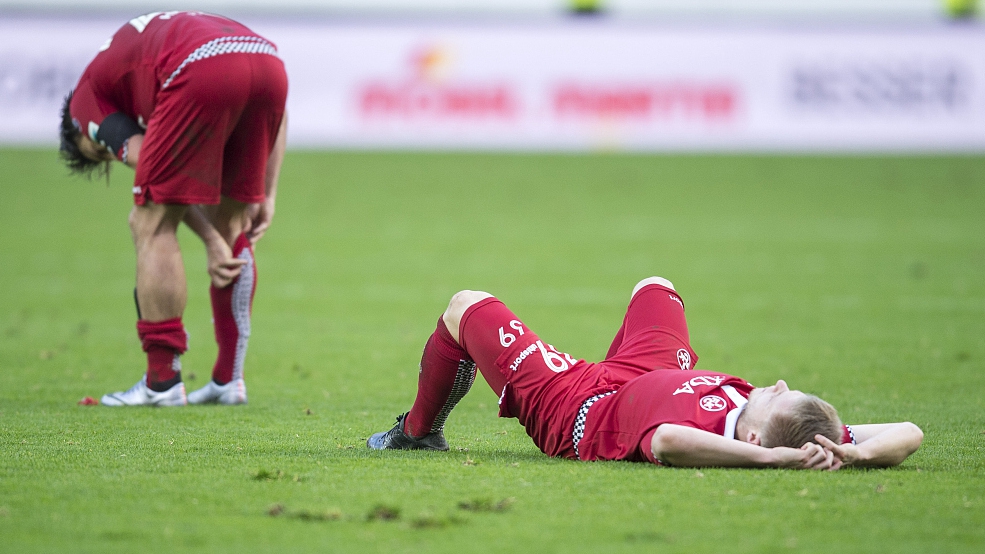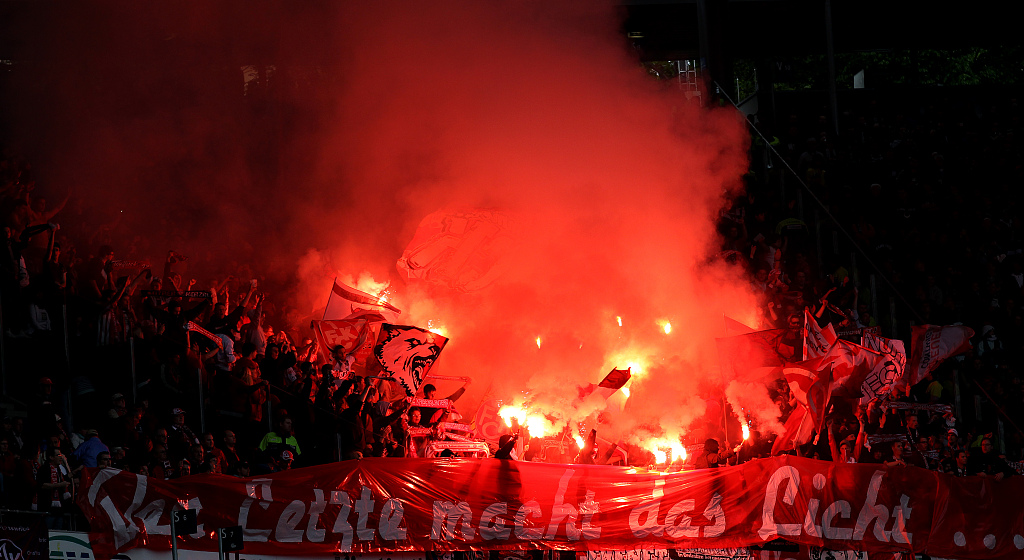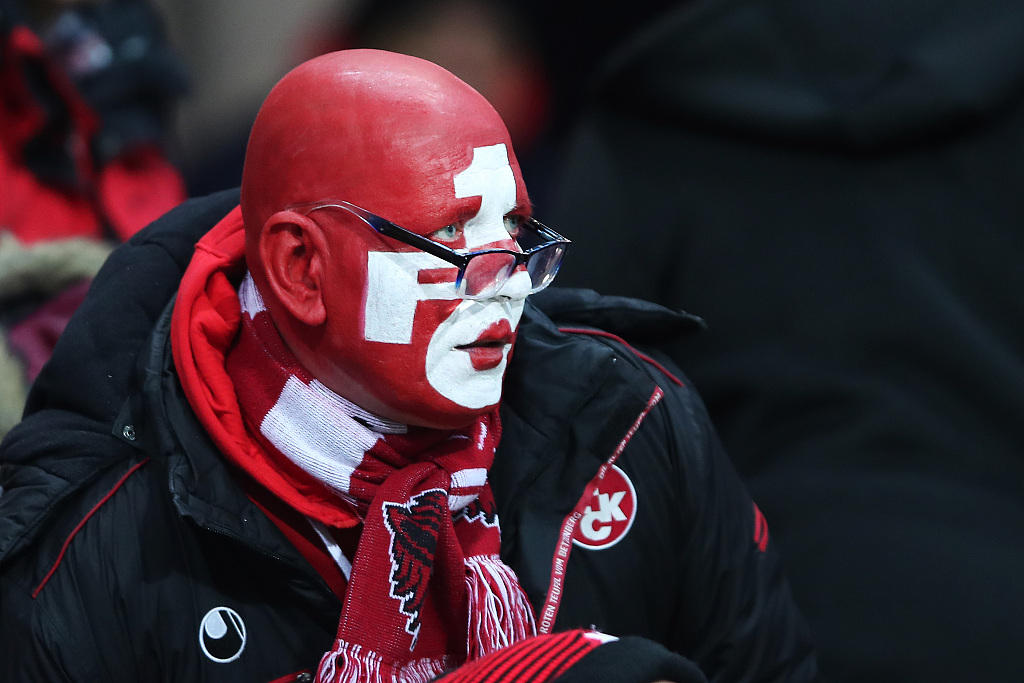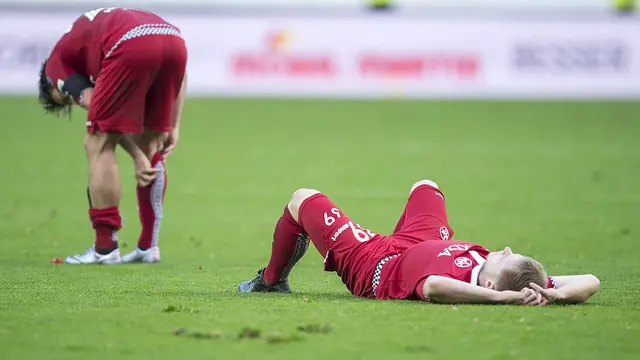
Kaiserslautern players react after their defeat at the hands of St. Pauli at Fritz-Walter Stadion, Kaiserslautern, Germany, December 6, 2015. /VCG
Football is back. Amid all the gloom and doom, major leagues throughout Europe begin to awaken from a three-month hibernation. For an industry that has been one of the worst affected by the COVID-19 pandemic, a return to a resemblance of normality is well under way.
However, as the unparalleled crisis left loads of well-heeled powerhouses scrambling for immense financial assistance and across-the-board pay cuts, small-budget clubs at the lower reaches, where the pinch is being felt even more acutely after the calamitous absence of gate receipts vital to survival, are losing the battle to stave off this existential threat.
Late on Monday, FC Kaiserslautern, one of Germany's most celebrated and fabled football clubs, declared that they have filed for bankruptcy protection after being hit hard by cash-flow problems and mounting debts during the ongoing coronavirus crisis.

Kaiserslautern fans set off flares during their Bundesliga clash with Hannover 96 at AWD Arena, Hanover, Germany, May 5, 2012. /VCG
Founded in 1901 as a founding member of the Bundesliga, the storied giants clinched the top-flight title four times and twice won the German Cup. The club also emerged as a real force to reckon with in Europe after make two stunning appearances in the UEFA Cup semifinals and storming into the Champions League quarterfinals in 1999.
And it's also worth noting that Kaiserslautern have shaped the landscape of German football as their prestigious squad of the 1950s formed the spine of the German national team that claimed their first World Cup in 1954.
As results on the pitch took a nosedive, Kaiserslautern had been on a downward trend for the past decade. In 2008, the club was relegated to the third division for the first time in history and the harsh cold reality pushed them into a vicious circle. Languishing in lower leagues deprived the struggling team of the much-needed money and resources to climb out of the rut and afford their 49,850-capacity stadium.
Then came the double whammy of the coronavirus and rising expenses. Kaiserslautern CEO Soeren Oliver Voigt lamented that the pandemic has slashed revenues and hampered talks with would-be investors. "During the lockdown phase we quickly noticed that the 82 days in which no football was played here clearly aggravated the financial situation," he observed.

A Kaiserslautern supporter with a painted face is seen prior to their DFB Cup match against Fortuna Duesseldorf at Fritz-Walter-Stadion, Kaiserslautern, Germany, February 4, 2020. /VCG
Last month, the German football season
made a triumphant return
as professional leagues were allowed to restart behind closed doors. But for a third-division minnow like Kaiserslautern, the eagerly-awaited resumption, while encouraging, was hardly enough to save their lives.
"We still can't allow our fans into the stadium, and they are enormously valuable for us," noted Voigt, who also pointed out that the bankruptcy filing was the only sensible way to prevent the club becoming extinct.
According to a club statement, Kaiserslautern players have already accepted huge wage cuts, yet uncertainty mounts over their future. Football is indeed back, but for many at the sharp end of the industry, fear of what's to come is still the overriding theme.
 简体中文
简体中文

